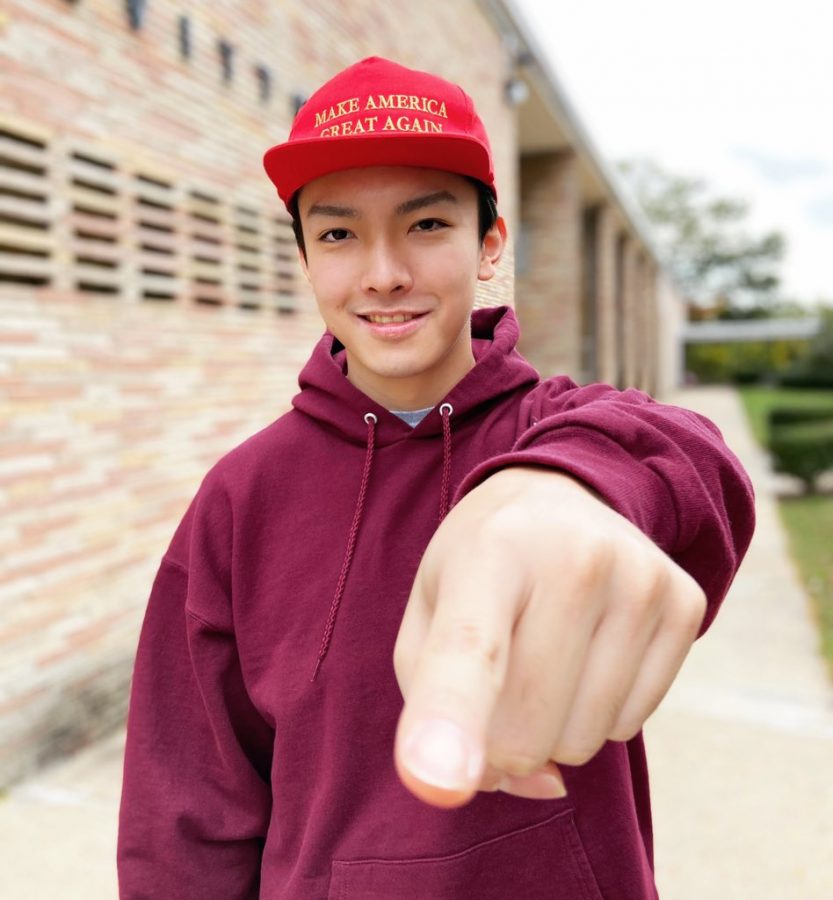Tong’s Lawsuit Dismissal Highlights Complexities of Case
The lawsuit of Austin Tong, GSB ‘21, against Fordham University was dismissed by Judge Carol R. Edmead of the New York Supreme Court. Tong’s petition stated that his freedom of speech was violated — a pointless suit as private universities are allowed to restrict freedom of expression. While Fordham’s decision to prohibit Tong from coming onto campus was legal, there is a gray area over whether it was the right punishment for the situation. In the polarized political climate we live in, we so desperately want everything to be black and white, but it is not — and this is the perfect example. Fordham made a decision that it thought was best to keep students safe, but was it the right decision? We may never know, but it was not an objectively wrong decision.
The controversy surrounding Austin Tong stems from an Instagram post he made over the summer. In the picture, he is holding an AR-15 with the caption “don’t tread on me” along with the U.S. flag and Chinese flag emojis. He explained that the post was made in memory of the Tiananmen Square protests and was meant to celebrate his rights as an American, but several Fordham students reported it to the school saying they felt threatened. In response, Keith Eldredge, the assistant vice principal and dean of students sent a letter to Tong stating that he had violated university policy on several counts, including the basis of threats and intimidation, and a disciplinary hearing was later held to decide on a punishment. The punishment included several components: Tong would not be allowed on campus without an escort, was required to write a letter of apology and would need to attend bias training.
Initially, I was shocked that Fordham violated its own promise to uphold our freedom of expression, as I personally did not find the post threatening. However, upon further thought, I completely understand the decision the school made. According to Eldredge’s affidavit, Tong told him during the disciplinary hearing that he had just purchased the AR-15 on the day that he posted the picture. Tong claimed the post was simply a memorial to Tiananmen Square, but it is more likely that he just wanted to show off his brand new firearm.
Eldredge went on to say that he thought about the various tragedies that have occurred on school grounds, such as the Columbine and Parkland shootings, and weighed their consequences with the desire to give Tong the right to voice his views. He ultimately decided it was better to be safe than sorry. It is not uncommon for mass shooters to post pictures of guns and violence on their social media, but, of course, that does not mean everyone with guns on their social media will be a mass shooter. It is a fine line to walk, as Fordham would be responsible if a tragedy were to occur, even though the likelihood of that happening in this situation is low.
It would be wonderful if Fordham could see into the future and know what Tong’s intentions are, but we don’t have those kinds of magic powers. There were four things Fordham did know though: Tong is in possession of a lethal weapon, he flaunted it in an Instagram post the same day he bought it, he purchased it for the purpose of protecting his family against protesters and students felt threatened by him. With that information in hand, Fordham barred him from accessing campus without an escort. This part of the punishment seems fair as he will still obtain a Fordham degree, but it will protect the other students and give peace of mind to those who felt threatened.
However, I do not think the other components of Fordham’s punishment were appropriate in this situation. The reason the punishment even existed is because there was a potentially dangerous situation at hand, not because Tong did something racist or offensive. We have no idea what Tong’s intentions were with that post, so making him write an apology letter and attend bias training is not a suitable punishment. Maybe Fordham has more information about his intentions, but with the information we have access to, barring him from campus was simply a precautionary measure for the safety of the Fordham community. There does not seem to be a concrete goal in making him write a letter or attend bias classes; it is honestly pointless, as it will not keep the Fordham students any safer.
Overall, Fordham made a choice that went against its goals to provide students with a place to express themselves freely. I have to believe that this choice was a difficult one, but the Fordham felt it was one they had to make to fulfill their duty to keep students safe. Like I said at the beginning of this article, not everything is black and white. I cannot not say whether they made the right choice — I can only say that they did not necessarily make the wrong one.
Ava Erickson, FCRH ’23, is a journalism major from Denver, Colo.

Ava Erickson is a senior from Denver. Her passion for writing and language led her to double major in journalism and Spanish studies. She began working...









































































































































































































Ava Erickson • Nov 11, 2020 at 12:19 pm
I absolutely agree with you that that part of the post gives a reason for why students felt the post was racist or lacked empathy. The reason I did not include that in the article was because I was discussing Fordham’s decision, not Tong’s intentions. I believe Fordham made a logical decision because they knew he was in possession of a deadly weapon, not because of the suspected intentions behind the post.
Abbey Cloonan • Nov 5, 2020 at 3:38 pm
You excluded the post made before the assault weapon photo, which was a photo of a murdered black police officer with the caption “y’all are a bunch of hypocrites”. That context is very important because it explains why people viewed his intent to be grounded in racism.